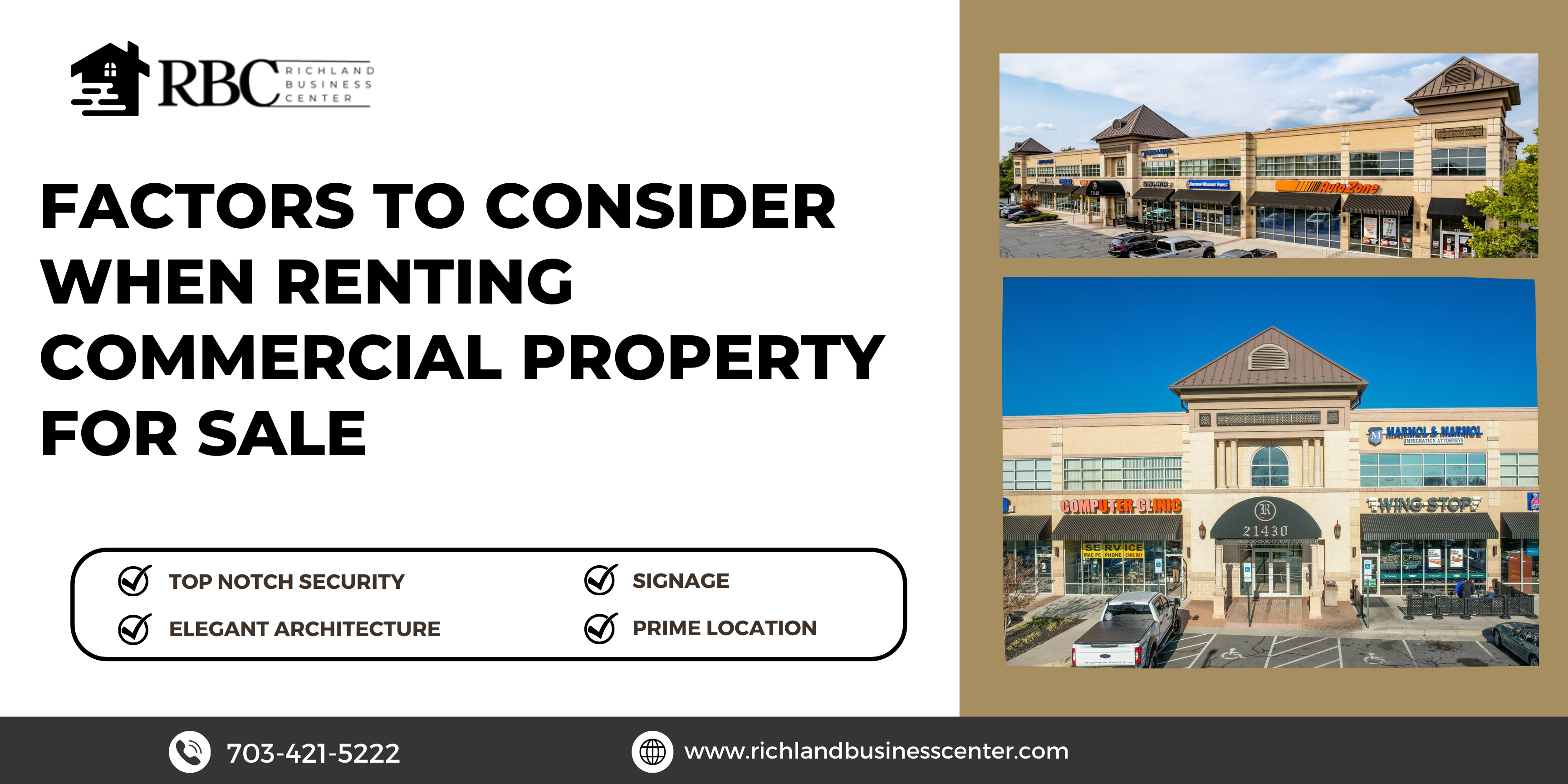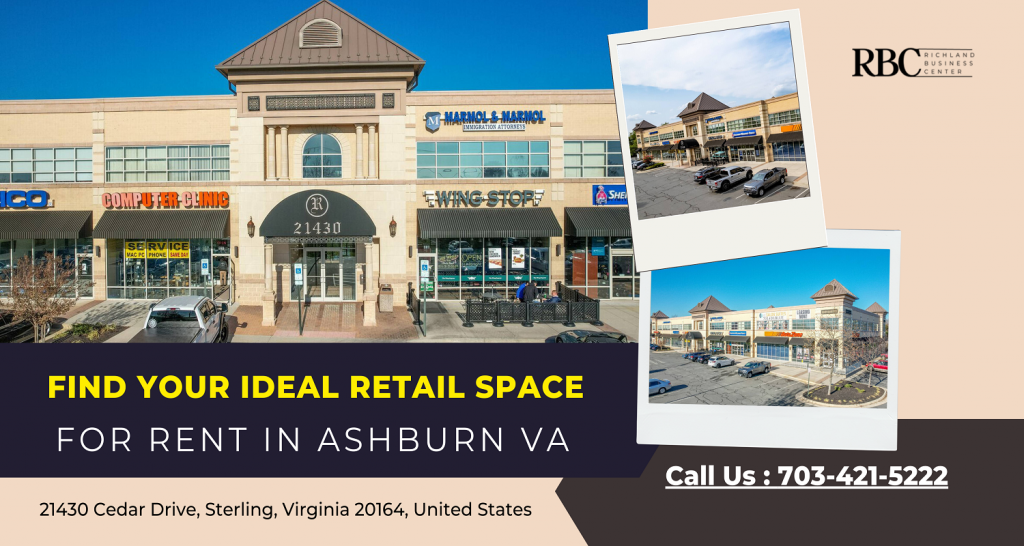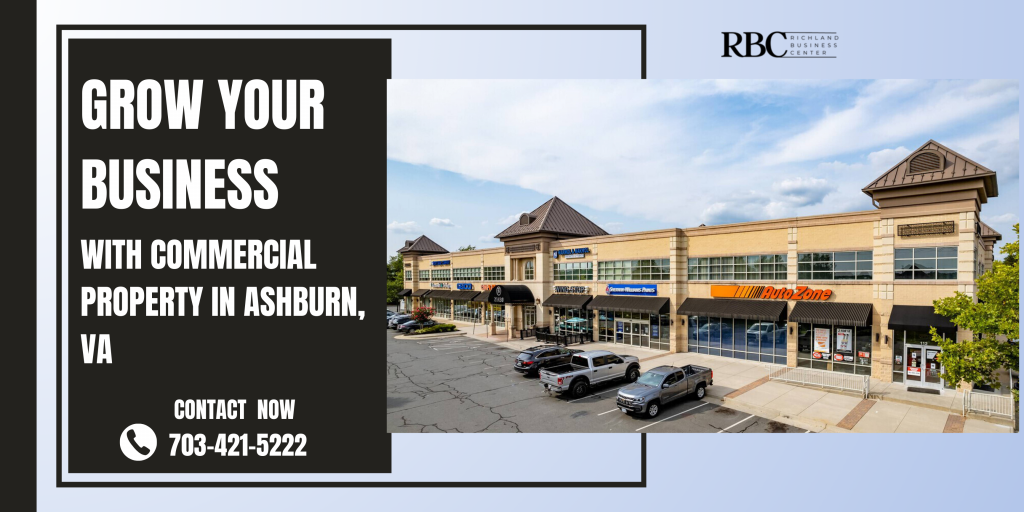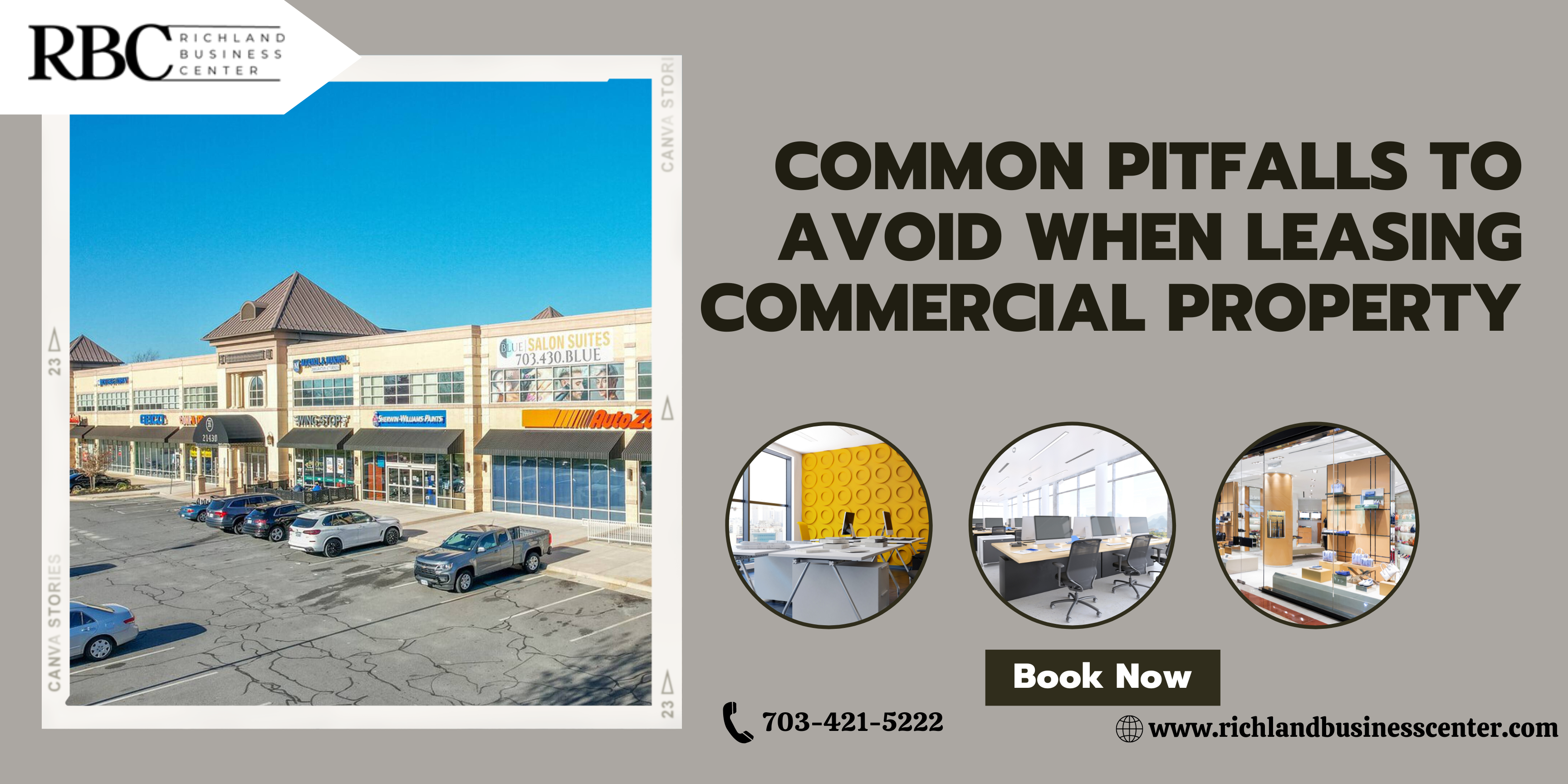Factors to Consider When Renting Commercial Property
 Are you considering renting commercial property for your business but feeling overwhelmed by the complexities involved? Look no further! In this blog, we will take you on a journey through the essential factors and considerations you need to know to make informed decisions and secure the perfect space for your venture.
Are you considering renting commercial property for your business but feeling overwhelmed by the complexities involved? Look no further! In this blog, we will take you on a journey through the essential factors and considerations you need to know to make informed decisions and secure the perfect space for your venture.
Introduction: Navigating the World of Commercial Property Rental in Ashburn, VA
When embarking on the journey of renting commercial property in Ashburn, VA, it’s essential to understand the unique dynamics and considerations specific to this vibrant area. Ashburn, situated in Loudoun County, Virginia, is a rapidly growing community known for its thriving economy, diverse industries, and strategic location within the Washington, D.C. metropolitan area. As such, navigating the commercial property rental market in Ashburn requires careful planning, research, and strategic decision-making to ensure that you secure the perfect space for your business needs.
Definition of Commercial Property in Ashburn, VA
Commercial property in Ashburn encompasses a wide range of options, including office buildings, retail spaces, industrial warehouses, and mixed-use developments. Whether you’re looking for a storefront in a bustling shopping center or a spacious office suite in a corporate park, Ashburn offers a diverse array of commercial real estate opportunities to suit various business ventures.
Importance of Choosing the Right Space in Ashburn, VA
The success of your business often hinges on selecting the right commercial space in Ashburn. With its strategic location, excellent infrastructure, and robust business environment, Ashburn provides a fertile ground for businesses to thrive. However, choosing the wrong location or type of property can hinder your business’s growth and profitability. Therefore, it’s crucial to assess your business needs, target market, and operational requirements carefully to ensure that the chosen property aligns with your goals and objectives.
Overview of the Renting Process in Ashburn, VA
Renting commercial property in Ashburn involves a series of steps and considerations that require diligent planning and execution. From identifying suitable properties and conducting site visits to negotiating lease terms and finalizing contracts, each stage of the rental process plays a vital role in securing the ideal space for your business. By understanding the intricacies of the renting process and seeking guidance from experienced professionals, you can navigate the commercial real estate market in Ashburn with confidence and achieve your business goals.
Understanding Your Business Needs: The Foundation of Your Search
Before diving headfirst into the process of renting commercial property, it’s essential to take a step back and thoroughly understand the specific needs and requirements of your business. This initial phase serves as the foundation for your search, guiding your decisions and ensuring that the property you ultimately choose aligns seamlessly with your business goals and objectives. Let’s delve deeper into this critical aspect:
Assessing Space Requirements
One of the primary considerations when renting commercial property is determining how much space your business truly needs. This involves evaluating various factors such as the nature of your operations, the number of employees, equipment and inventory storage requirements, and anticipated future growth. By accurately assessing your space requirements, you can avoid the pitfalls of choosing a property that is either too small, leading to cramped conditions and hindered productivity, or too large, resulting in wasted resources and unnecessary expenses.
Identifying Location Preferences
The location of your business can significantly impact its success. Therefore, it’s vital to identify your location preferences based on factors such as target market demographics, accessibility for customers and employees, proximity to suppliers or distribution channels, and visibility within the community. Whether you prioritize foot traffic in a bustling commercial district, convenience for clients in a suburban area, or accessibility to transportation hubs for logistical efficiency, understanding your location preferences helps narrow down your search to areas that best serve your business interests.
Budgeting for Rent Expenses
Renting commercial property entails financial commitments beyond just the monthly rent. It’s essential to carefully budget for all associated expenses to ensure financial sustainability and avoid unexpected costs that could strain your bottom line. In addition to the base rent, consider other financial obligations such as utilities, maintenance fees, property taxes, insurance premiums, and any common area maintenance (CAM) charges. By developing a comprehensive budget that accounts for all these expenses, you can make informed decisions about the affordability of potential properties and avoid financial surprises down the road.
Tailoring Your Search to Fit Your Business Needs
Once you have a clear understanding of your business needs regarding space requirements, location preferences, and budget constraints, you can begin your search for commercial properties with confidence and purpose. By focusing your efforts on properties that meet these specific criteria, you can streamline the selection process and maximize the likelihood of finding a space that perfectly aligns with your business objectives.
Evaluating Property Features: Finding the Perfect Fit
When it comes to renting commercial property, one of the most crucial steps is evaluating the property features to ensure it aligns with your business needs and objectives. Here’s a deeper dive into this essential aspect of the rental process:
Physical Infrastructure Assessment
The physical infrastructure of a commercial property encompasses its structural integrity, layout, and condition. When evaluating this aspect:
- Structural Integrity: Assess the building’s overall condition, looking for signs of wear and tear, structural damage, or potential safety hazards. Ensure that the property meets building code requirements and safety standards.
- Layout and Configuration: Consider whether the property’s layout and configuration suit your business operations. Evaluate factors such as floor plan flexibility, room sizes, and the arrangement of spaces to determine if it can accommodate your workflow efficiently.
- Condition of Fixtures and Equipment: Inspect fixtures, fittings, and equipment within the property, such as lighting fixtures, HVAC systems, plumbing, and electrical wiring. Ensure they are in good working condition and meet your operational needs.
Accessibility and Parking Facilities
Accessibility and parking facilities play a significant role, especially for businesses that rely on foot traffic or have employees and customers who drive to the premises. Here’s what to consider:
- Location Accessibility: Evaluate the property’s accessibility by assessing its proximity to major roads, highways, public transportation hubs, and amenities such as restaurants, banks, and retail outlets. A convenient location can attract more customers and employees.
- Parking Availability: Determine if the property has sufficient parking space to accommodate your employees, customers, and visitors. Consider factors such as parking lot size, layout, accessibility, and any parking restrictions or regulations in the area.
Amenities and Additional Services
Amenities and additional services can enhance the functionality and appeal of a commercial property. Here are some amenities to look for:
- Conference or Meeting Rooms: If your business requires meeting spaces for client presentations, team meetings, or conferences, evaluate the availability and suitability of conference or meeting rooms within the property.
- Wi-Fi and Connectivity: In today’s digital age, reliable internet connectivity is essential for business operations. Ensure that the property offers high-speed internet access and reliable Wi-Fi coverage throughout the premises.
- Maintenance and Cleaning Services: Consider whether the property provides maintenance and cleaning services, such as janitorial services, landscaping, and property maintenance, to ensure the upkeep and cleanliness of the premises.
Financial Analysis and Budgeting: Crunching the Numbers
Renting commercial property involves more than just paying the monthly rent. It’s essential to conduct a thorough financial analysis to understand the total cost of occupancy and budget accordingly. This process includes:
- Calculating Total Cost of Rent: Beyond the base rent, consider additional expenses like utilities, taxes, insurance, maintenance, and any other fees associated with the lease. Summing up these costs will give you a clearer picture of your total monthly or annual expenditure.
- Negotiating Lease Terms and Conditions: Negotiate lease terms that align with your budget and business objectives. This may involve negotiating for lower rent, favorable payment terms, or inclusion of certain services or utilities in the lease agreement.
- Budgeting for Additional Expenses: Anticipate and budget for additional expenses that may arise during your tenancy, such as repairs, renovations, or unexpected maintenance costs. Having a contingency fund set aside can help cover these expenses without disrupting your cash flow.
By crunching the numbers and budgeting accordingly, you can ensure that your commercial property rental remains financially sustainable and within your means. This proactive approach will help you avoid financial strain and ensure a smooth and successful tenancy.
Flexibility and Scalability Options: Planning for the Future
Flexibility and scalability options in the context of renting commercial property refer to the ability of a business to adapt and adjust its space requirements according to its evolving needs and circumstances. This aspect is crucial for planning for the future and ensuring that the chosen property can accommodate the growth or changes that may occur within the business.
Assessing Lease Flexibility
One aspect of flexibility involves negotiating lease terms that offer flexibility in terms of space adjustments or lease terms. For example, a business may negotiate for options to expand or contract the leased space based on its changing needs. This could include provisions for adding additional square footage to the existing lease or downsizing if the business experiences fluctuations in demand.
Planning for Business Growth or Contraction
Anticipating future growth or contraction is essential when selecting a commercial property. Businesses should consider their long-term growth projections and assess whether the chosen property can accommodate expansion plans without significant disruptions or additional costs. Conversely, businesses should also consider the possibility of downsizing or restructuring operations and ensure that the property allows for flexibility in such scenarios.
Subleasing and Assignment Options
Another aspect of flexibility involves exploring subleasing or assignment options within the lease agreement. Subleasing allows a tenant to lease out a portion of their leased space to another party, while assignment involves transferring the lease agreement to a new tenant. These options provide businesses with the flexibility to optimize space utilization and mitigate financial risks, especially if their space requirements change unexpectedly.
Overall, flexibility and scalability options are essential considerations when renting commercial property as they enable businesses to adapt to changing market conditions, expansion opportunities, or economic uncertainties. By prioritizing flexibility in lease negotiations and selecting properties that offer scalability options, businesses can future-proof their operations and ensure that their space requirements remain aligned with their evolving needs and objectives.
Security and Safety Measures: Prioritizing Protection
When it comes to renting commercial property, prioritizing security and safety measures is paramount to protect your employees, customers, assets, and the overall integrity of your business operations. Here’s a deeper dive into the various aspects of security and safety measures:
1. Assessing Property Security Features:
During the evaluation of potential commercial properties, it’s crucial to thoroughly assess the existing security features in place. This includes:
- Security Systems: Check for the presence and functionality of security systems such as alarms, surveillance cameras, and access control systems. These systems help deter unauthorized access and monitor activities within the premises.
- Access Control: Evaluate the effectiveness of access control measures, including entry points, keycard systems, or biometric scanners. Restricting access to authorized personnel only enhances overall security.
- Physical Barriers: Look for physical barriers such as fences, gates, or bollards that prevent unauthorized entry and protect against vehicle-related threats.
2. Fire Safety and Emergency Preparedness:
Ensuring adequate fire safety measures and emergency preparedness is vital to protect occupants and minimize property damage in case of emergencies. Consider the following:
- Fire Detection and Suppression: Verify the presence of fire detection systems such as smoke detectors and sprinkler systems. These early warning systems can detect and mitigate fire hazards before they escalate.
- Emergency Exits: Confirm the availability and accessibility of emergency exits, ensuring they are clearly marked, unobstructed, and compliant with building codes and regulations.
- Emergency Response Plan: Inquire about the property’s emergency response plan, including evacuation procedures, assembly points, and designated personnel responsible for emergency coordination.
3. Compliance with Building Codes and Regulations:
Ensuring compliance with local building codes and regulations is essential to maintain a safe and legally compliant workplace environment. This involves:
- Building Inspections: Verify that the property has undergone regular inspections and meets all applicable building codes, fire safety standards, and accessibility requirements.
- Certificates and Permits: Request documentation such as certificates of occupancy, fire safety permits, and compliance certificates to confirm regulatory compliance.
- Accessibility Standards: Ensure that the property is accessible to individuals with disabilities, including wheelchair ramps, elevators, and designated parking spaces, in compliance with accessibility standards like the Americans with Disabilities Act (ADA).
By prioritizing these security and safety measures when evaluating commercial properties, you can create a secure and conducive environment for your business operations while mitigating risks and ensuring the well-being of all stakeholders involved.
Final Recommendations for Renting Commercial Property
When considering commercial property for rent in Ashburn, VA, it’s crucial to start your search early and thoroughly explore all available options in the area. Ashburn, VA, is a vibrant and rapidly growing community with a diverse range of commercial real estate offerings, from office spaces and retail storefronts to industrial warehouses and flex spaces. By starting your search well in advance, you can take the time to assess your business needs, research market trends, and compare rental rates to find the best fit for your budget and requirements. Additionally, communicating openly with landlords and property managers can help you gain valuable insights into the local market and negotiate favorable lease terms. Remember to stay informed about your rights and responsibilities as a commercial tenant and seek professional advice when needed to ensure a smooth and successful rental experience in Ashburn, VA.
Frequently Asked Questions
Q1. What factors should I prioritize when renting commercial property?
Ans: When renting commercial property, it’s essential to prioritize factors such as location, space requirements, budget, and lease terms that align with your business needs and objectives.
Q2. How long does it typically take to find and secure a suitable commercial space?
Ans: The time it takes to find and secure a suitable commercial space can vary depending on factors such as market conditions, availability of properties, and the complexity of your business requirements. It’s advisable to start your search well in advance to allow ample time for due diligence and negotiation.
Q3. What are common mistakes to avoid during the commercial property renting process?
Ans: Common mistakes to avoid when renting commercial property include failing to conduct thorough market research, neglecting to review lease contracts carefully, and not seeking legal or financial advice when needed. It’s essential to approach the rental process with diligence, patience, and attention to detail to avoid costly errors.




